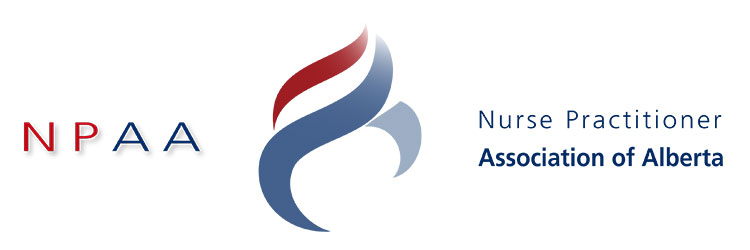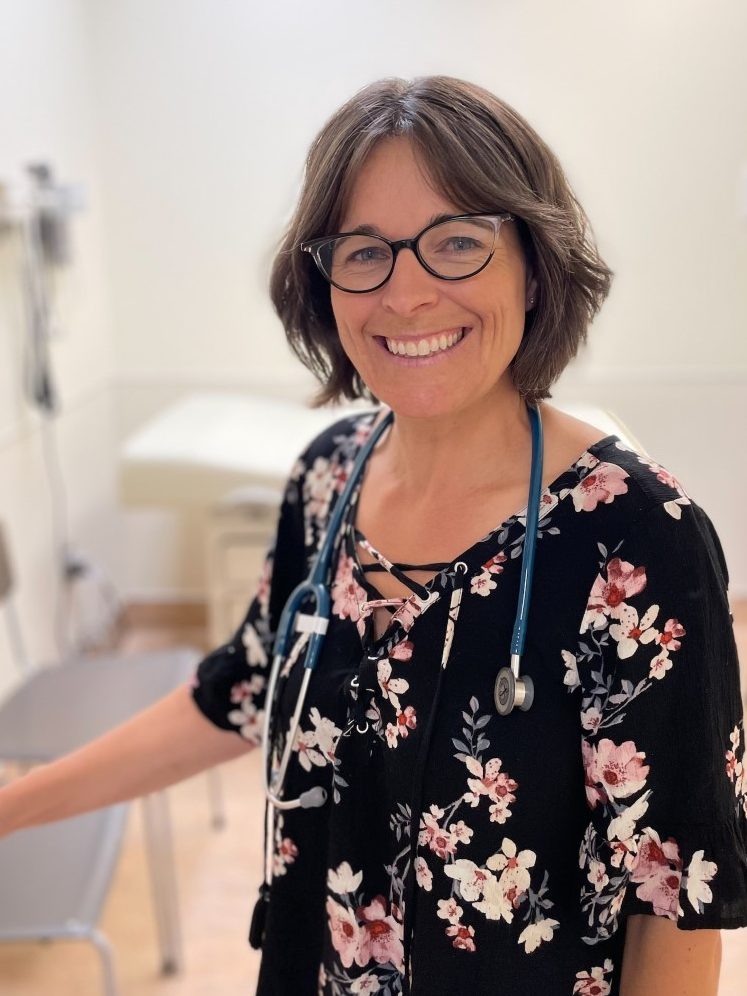What prompted you to consider moving into an Advanced Practice role in Nursing?
I had always been interested in furthering my education after I completed my BScN. Once I started as a new grad RN in Denver, CO I worked with some NPs and decided that was something I was interested in pursuing one day!
How did you decide where and how you practice?
I was a staff RN at Alberta Children’s Hospital and began my NP training. I did not know exactly what opportunities would arise, but I knew I wanted to work in Acute Care in Pediatrics. At that time my program provided the opportunity for me to train in the areas I was hoping to work one day. A job did come up, so I of course wanted it. Over the years it was clear there were aspects of the NP role that had to change, and I was fortunate to have leadership support to recognize those changes needed to occur. I now practice with a great team in an area that benefits from having NP support.
Can you tell us a bit about your clinical environment (e.g., where you work, with whom you collaborate, etc).
The pediatric general surgery service consists of 6 surgeons, 2 fellows, often 2 clinical associates, and rotating residents from general surgery, pediatrics, and anesthesia. There are clinic RNs and of course all the nurses throughout ACH. Physically we have patients all over the hospital. Clinic/ambulatory care runs Mon-Fri and there are clinics that are NP led. The call schedule is busy, and I do one call shift/week. As first call on this service you stay in hospital because it is a busy service. Call involves taking ward calls, and doing all incoming consults at that time, and assisting in the OR. On days I am not on call, I will assist with whatever ward issues arise (discharges or investigations) and help in clinic as well. The pediatric general surgery service consists of quite a variety of diagnoses and that is what I love. Common diagnoses such as appendicitis and hernias to rare birth anomalies such as gastroschisis, omphaloceles, congenital diaphragmatic hernias and of course many other surgical issues.
How does your role fit within established health care roles in your work area?
I think the really neat thing about being an NP in the surgical area is in fact how different everyone’s roles are on the team, but we all have unique ways of contributing to the team. I certainly can provide a unique link to nursing with my background as a nurse but also there are many opportunities within the surgical area which patients do not require an actual operation but require specialist service/attention and I am able to help with these roles. There are populations of patients that the NP role can help provide care knowing there are surgeons available to jump in when needed.
What is one thing you wished you knew before starting in your current position? Describe the challenges you face in your position.
I wish I had more opportunity for education. Resources to allow me to take certain courses that because I cannot afford them, I am learning on the job. Resources are not present to allow us to get proper training as NPs. I am fortunate my colleagues are supportive, however for my own education there are things I would like to have done. Biggest challenge: working in an acute care environment, taking call and learning how to manage a busy surgical service! I can’t pinpoint one particular task but certainly seeing new diagnoses that I have never seen but still having to manage other patients is a challenge!
What do you feel is unique about your practice role?
Firstly the great support I get from all my colleagues- so much respect from nurses and physicians. That is the number one reason I keep on keeping on. What is unique about my role is I get to be a part of the patient’s care across the continuum: from ambulatory to acute care which includes ED, ICU, ward, NICU, short stay and OR. It never gets boring!
What research or teaching are involved in your current role? (non-clinical work)
Currently I attend the academic half day for the Pediatric General Surgery group and take this time for my OWN learning. There are small research projects I am involved in, but my non-clinical work is focused more on clinical pathways, protocols, teaching information for families and of course as a super user for Connect Care. I suspect this will change over the years but for now my learning as taken over the non-clinical time!
What is something that all NPs can learn from the work you are doing in your current environment?
One big tip is the NP position can change over time in our ever-evolving healthcare system. Stay open to life-long learning – if you enjoy that, you are in the right profession! I have learned that many days can be humbling with new information, but luckily there will always be some comfort in the common diagnoses.
How could NPs working in your practice area be best supported?
Sad to say funding, but the ability to further education should not be such a barrier. In the long run it is better for patients and the system so we should be supported to do so.
What do you feel is the biggest impact of the role of the NP in your practice setting?
I think for specialty surgery services and many services that have learners it can be a nice break to have also someone part of the staff mix that is invested in the long-term success of a particular program. NPs are value added to surgical services because we want to make the programs better and we bring a unique perspective to that program. It improves the diversity of a program when you add an NP and we become familiar with our roles and responsibilities.


